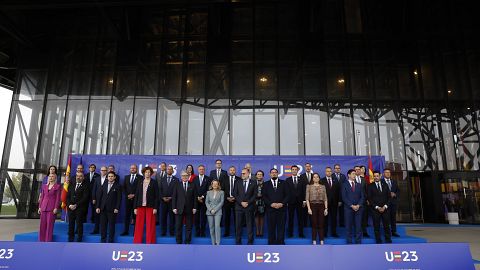Countries will discuss the outcome of the public consultation.
Member states remain sceptical about European Commission plans to overhaul telecom rules aimed at improving connectivity and network infrastructure, according to draft conclusions on a planned Digital Networks Act (DNA), seen by Euronews.
Under the Commission plan, spearheaded by Internal Market Commissioner Thierry Breton and launched on 21 February, the future of digital infrastructure needs to be reassessed, to pave the way for a new telecom law for the next mandate.
The executive wants to address problems with connectivity, spectrum and investment, as new technological applications require more and more data processing and storage.
During a working party meeting in Brussels tomorrow (5 September), national government representatives will however call upon the Commission to further analyse challenges arising from emerging technologies, consider future-proof solutions, and base its proposals on evidence.
Euronews already reported in March that countries are mostly sceptical about such an overhaul and question the need for faster and more 5G connections.
There is general alignment on the goals of the plans, however: the need for an upgrade of telecom infrastructure to meet the needs of connectivity and security standards.
During the meeting, the Commission is set to present a summary of the public consultation on the white paper, which ended in June. It is up to the new Commission, which is likely to take office before the end of this year, to come up with the legislative proposal.
EU governments will stress that the regulation of the electronic communications sector should proportionately address both supply and demand, including the affordability of consumer services.
And they also want the EU executive to consider other critical obstacles hindering infrastructure development, such as administrative burdens, lack of consumer demand, scarcity of construction capacities and risk of low uptake of networks in rural areas.
Their comments will be taken into account by Hungary, which is leading the EU ministerial meetings, with the aim to present a second text on 24 October.
The final text of the Council Conclusions is expected be approved by Telecom Ministers at their meeting on 6 December.
















